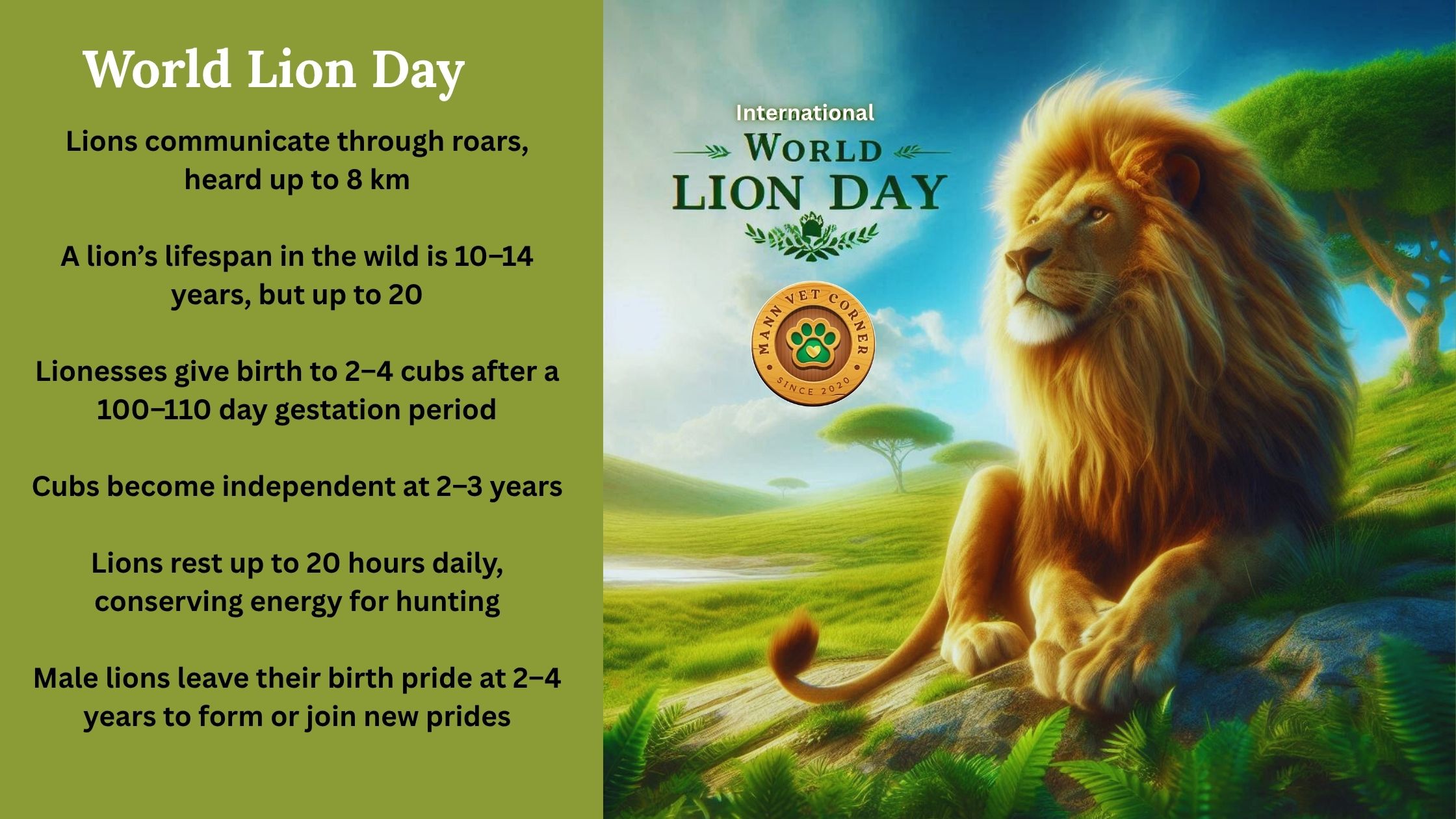World Lion Day is celebrated annually on August 10 to raise awareness about the conservation of lions, whose populations have drastically declined due to habitat loss, poaching, human-wildlife conflict, and trophy hunting. Initiated in 2013 by conservationists Dereck and Beverly Joubert in partnership with National Geographic’s Big Cat Initiative, the day aims to educate people about the plight of lions and promote actions to protect them.
Key Facts About Lions and Their Conservation:
- Population Decline: African lion populations have dropped by about 43% since 2001, with only 20,000–30,000 lions remaining in the wild, limited to 8% of their historical range.
- Status: Lions are listed as “Vulnerable” on the IUCN Red List, with a population of approximately 23,000 mature individuals.
- Threats: Major threats include habitat destruction, human encroachment, trophy hunting, and poaching for body parts used in traditional medicine.
- Ecological Role: As apex predators, lions maintain ecosystem balance by regulating prey populations, preventing overgrazing, and supporting biodiversity.
- Cultural Significance: Lions symbolize strength and nobility across cultures, from ancient Egyptian sphinxes to modern media like The Lion King.
How to Celebrate and Support World Lion Day:
- Raise Awareness: Share facts, photos, or posts on social media using hashtags like #WorldLionDay or #LionConservation.
- Support Conservation: Donate to or volunteer with organizations such as the African Conservation Foundation, Lion Guardians, Panthera, or Ewaso Lions.
- Educate Yourself and Others: Visit zoos, watch documentaries like The Last Lions, or read about lion conservation to learn more.
- Avoid Harmful Practices: Refuse to support businesses offering captive lion experiences or products derived from lions.
- Engage Locally: Participate in events at zoos or wildlife centers, such as keeper Q&As or educational programs, to learn about lion conservation efforts.
Notable Conservation Efforts:
- Panthera’s Work: In Senegal, Panthera uses GPS collars to track lion movements, aiding in habitat connectivity and conflict reduction.
- Ewaso Lions: This group engages local communities in Samburu, Kenya, to monitor lions and reduce human-wildlife conflict.
- Asiatic Lions: Conservation in India’s Gir Forest has increased the population from as low as 20 to about 700, a rare success story.
World Lion Day emphasizes collective action to ensure lions continue to roam the wild. By supporting habitat preservation, anti-poaching measures, and community engagement, individuals can help protect these iconic animals for future generations. For more information, visit worldlionday.com or support organizations like Big Cat Rescue or the Lion Recovery Fund.

I’ll immediately snatch your rss as I can not to find your e-mail subscription link or e-newsletter service.
Do you have any? Kindly permit me realize so that I may just subscribe.
Thanks.
Thanks for your comments; please find the link below for subscription.
https://mannvetcorner.com/about-me-dr-mansoor/
Do you have any video of that? I’d want to find out more details.
I plan to create a video and include a link to it in this article.
Hi i am kavin, its my first time to commenting anywhere, when i read this piece of writing i thought i could also create
comment due to this good paragraph.
Your thoughts and input are valued.
Hey there just wanted to give you a brief heads up and let you
know a few of the images aren’t loading properly. I’m not sure why but I think its a
linking issue. I’ve tried it in two different web browsers and both
show the same results.
Thanks for letting me know. I’ll check out the problem.
Appreciating the time and effort you put into your
site and detailed information you offer. It’s awesome to come across a blog every once in a while that isn’t the same out of date rehashed
information. Great read! I’ve bookmarked your site and I’m
adding your RSS feeds to my Google account.